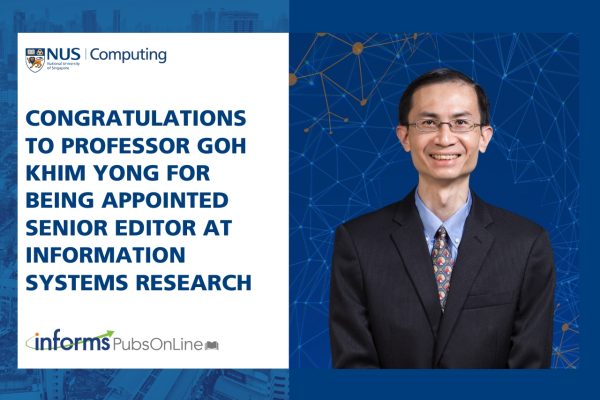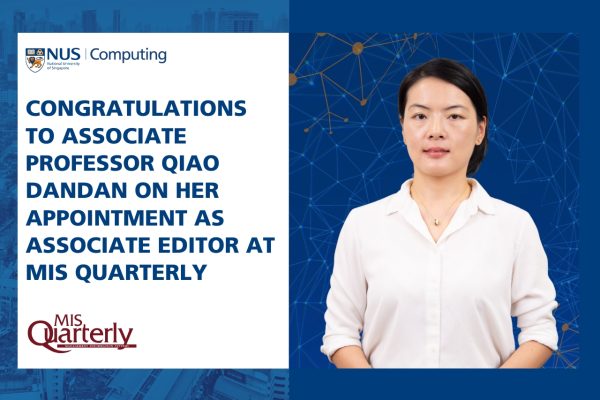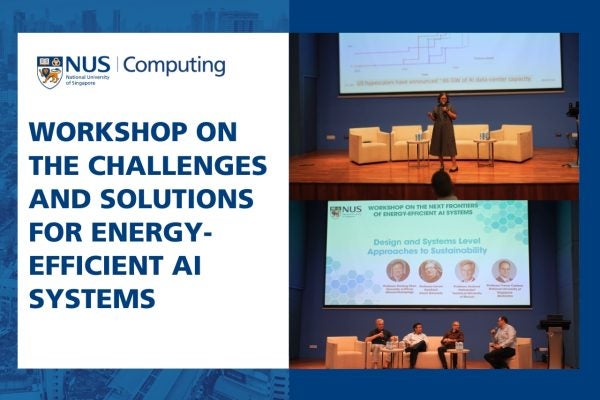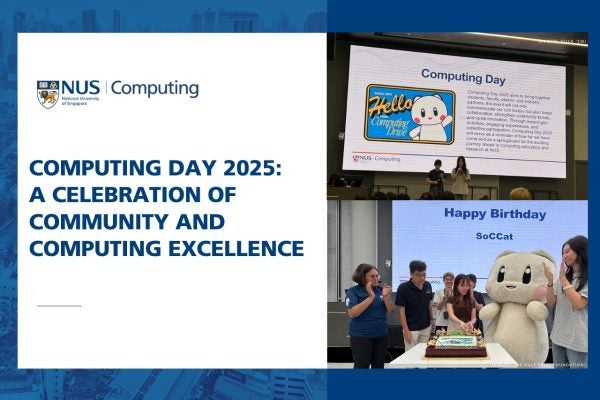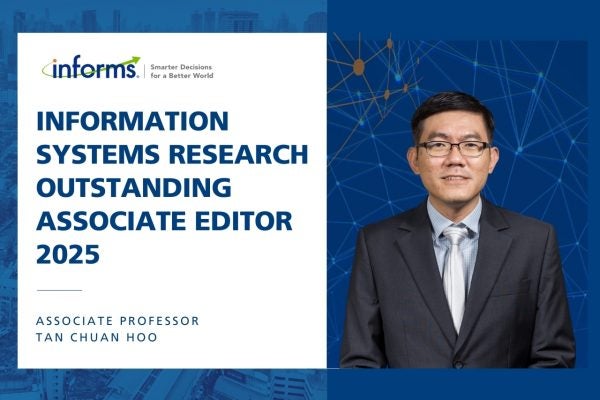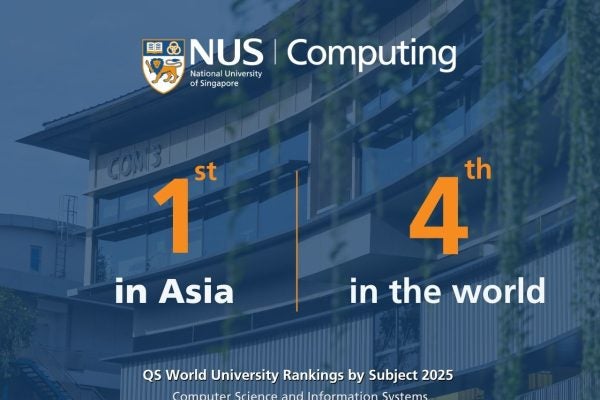Filtered by: Department of Information Systems & Analytics
On The Business Times' Thrive, Associate Professor Sharon Tan, contributed insights to an article examining whether a tech degree remains valuable in an AI-driven economy. She highlighted that strong computing fundamentals remain essential, even – and especially – in an age of AI. While AI can automate routine tasks, it cannot replace the human judgement, creativity, and critical thinking needed to design reliable, responsible, and impactful systems. Graduates who pair deep technical grounding with the ability to work confidently and thoughtfully with AI will continue to stand out in a fast-evolving industry.
Professor Hahn Jungpil from NUS Computing was featured in Lianhe Zaobao on consumer fraud in the digital economy, where he commented on how scams are becoming more targeted and sophisticated, particularly towards older consumers. He noted that while seniors in Singapore tend to have higher scam awareness compared to those in other Asia-Pacific countries, they also face greater financial losses when defrauded due to their accumulated assets and the nature of scams such as impersonation of government officials.
He advised businesses to take proactive steps against online fraud, including monitoring for fake websites and social media accounts, clarifying official communication channels, and collaborating with platforms and authorities to swiftly remove impersonators.
Professor Hahn Jungpil from NUS Computing was featured in an interview on ZDnet Korea discussing the global AI race, which he described as a “war of data and capital”. He noted that the United States and China are leading due to their access to vast data and strong investments in computing and AI models.
He highlighted the rise of agentic AI as a key driver of corporate investment but stressed the need for ethical development. Drawing from Singapore’s approach, he advocated for flexible, forward-looking regulations and emphasised the importance of cross-sector communication to balance innovation with governance.



